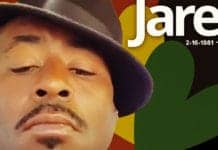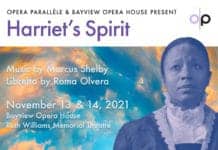
Juan Gomez, Sandra Izsadore, Iminah Ahmad, Asaba M Kugonza and JR Valrey at the Starline Social Club
by JR Valrey, the People’s Minister of Information
“This is one of the main markets in Lagos, and it was here that I met Fela for the first time. At that time, they had huge human-sized speakers blaring different types of music, but there was this one music that stood out, and I asked, what music is that? And he said to me, ‘That be Fela.’ And I never heard a music that was so beautiful. It was just like the first time when I heard jazz in my life, when I was young. It was the same sensation,” said social scientist and writer Carlos Moore, the narrator and host who guides us through the musical and political development of the legendary African giant of a musician and political thinker, Fela Kuti, in Joel Zito Araujo’s new documentary, “My Friend Fela,” which was released earlier this year, initially in Brazil.
“The Afrobeat of Fela was a politico-cultural manifesto. It wasn’t only a music, it was a politico-cultural manifesto. He wanted to say something as an African, and he said it,” said Ray Lerma, a musician and friend of Fela, who was interviewed in the film.
This is a very important film for today’s times. Fela was a political Black revolutionary who used music as his sole weapon to address injustices perpetrated by the government, mostly in his country of Nigeria.
Some know the catalog and about the lives of Bob Marley and the Wailers, Peter Tosh and Bunny Wailer, as they should, and an even smaller percentage knows about the lyrical teachings of Nigeria’s Afrobeat prophet of rage Fela Anikulapo Kuti, who rightfully deserves his seat in the pantheon of Black revolutionary fighters and teachers who fought against colonialism, neo-colonialism, imperialism and capitalism.
“Fela was such an important and vigorous and extraordinary figure within the Pan African movement, the Negritude movement, the movement of Black rights, Civil Rights, call it Human Rights, whatever you want to call it, to reduce him to a cultural icon. He’s a ghetto hero,” says Carlos Moore who also documents his own road to Black consciousness right alongside Fela in this elegantly shot and thoroughly researched piece of cinema.
I love that “My Friend Fela” is not a fluff piece. It contains voices that are critical of Fela. It also contains the voices of people who passionately loved him. Sometimes these contrasting voices came out of the same body, like in the clips of Sandra Izsadore’s interview that are used. She was one of Fela’s lovers, a fellow musician who recorded with him, and also one of his most prominent political teachers, be it that she was associated with the Black Panther Party chapter in Los Angeles.
“So then I’m saying, what are you singing about. And that’s when he told me, he was singing about his suit. And then after my laughter kind of subsided, I literally said there are so many important things and issues in the world, that we need to sing about. Why would you sing about suits?
“It wasn’t until he made the statement about how stupid Africans were, that I had a mental break down, and I went off on him. When I reflect back, and I see how animated I was, it was like I really literally became the Panther, and I pounced. And I told him how stupid and ignorant he was, to say such things, and to never speak like that again about Black people, because he didn’t know nothing. And I started giving him books,” said Sandra Izsadore in this one hour and 34 minute documentary.
Fela also speaks largely for himself throughout “My Friend Fela” through archived interviews, which I think is valuable, although the context given as well as the elaborate stories from people who knew him who were interviewed color the film in such a way that makes it unforgettable.
“If you are in England, the music can be an instrument of enjoyment. You can sing about love. You can sing about who you are going to bed with next. But in my environment, my society is under-developed because of an alien system on our people now, so there’s no musical enjoyment.
“There’s nothing like love, but there is something like struggle for people’s existence. So as an artist, politically, artistically, the whole idea about your environment must be represented in the music, in the art. So really art is what is happening at a particular time of a people’s development. So I think as far as Africa is concerned, music cannot be for enjoyment. Music has to be for revolution,” says a politically polished Fela.
“My music is not for entertainment; it is for revolution. I have my own selfish reasons for being in this struggle, and the reason is this: I want to be a great man. Because I have this in my mind, and I know that many Black brothers and sisters have this in their minds, I will not compromise.”
Surprisingly the filmmakers let Fela address his own radical views on polygamy head-on in “My Friend Fela,” in light of the fact that many documentaries lionize their subject, but fail to meticulously examine the complexities that deem the subject radical and controversial, especially around a topic like polygamy, which can possibly affect how Fela and the film itself is seen in countries that are bastions of feminist thought, like Brazil, the U.S. and the U.K., which are huge markets for cinema.
“It’s very important for a man to marry many women, because a man goes for many women in the first place. Like in Europe, when a man is married, when his wife is sleeping, he goes out and fucks around. And he should bring the women in the house to live with him, and stop running around in the streets. That’s what a man is supposed to do, a man’s not supposed to run around in the streets after women, you see. Women should be in his home.”
The film also discusses how in February of 1977, 1,000 soldiers from the Obasango regime attacked Fela’s Kalakuta Republic Commune because of the political nature of his song “Zombie” and the civil unrest that he would stir up whenever he decided to sing it. The soldiers ended up killing his mother Fumilayo, who was considered to be a socialist force in Africa on par with the late Patrice Lumumba and Kwame Nkrumah. In the film, a respectable amount of time was given to address how this traumatic event affected his mental state throughout his turbulent, one-of-a-kind life. Fela died Aug. 2, 1997.
“My Friend Fela” is a definitive look at a man who helped to give a revolutionary, funked out musical voice to a continent as well as a planet suffering under the brutality of imperialism and post-colonialism.
Look out for “Loud Impressions, Subtle Thoughts,” the new film critique and interview book by JR Valrey, the People’s Minister of Information, coming out in early 2020.
The People’s Minister of Information JR Valrey, journalist, author and filmmaker, can be reached at blockreportradio@gmail.com or on Facebook. And tune in to BlockReportTV on YouTube.

 Store
Store












